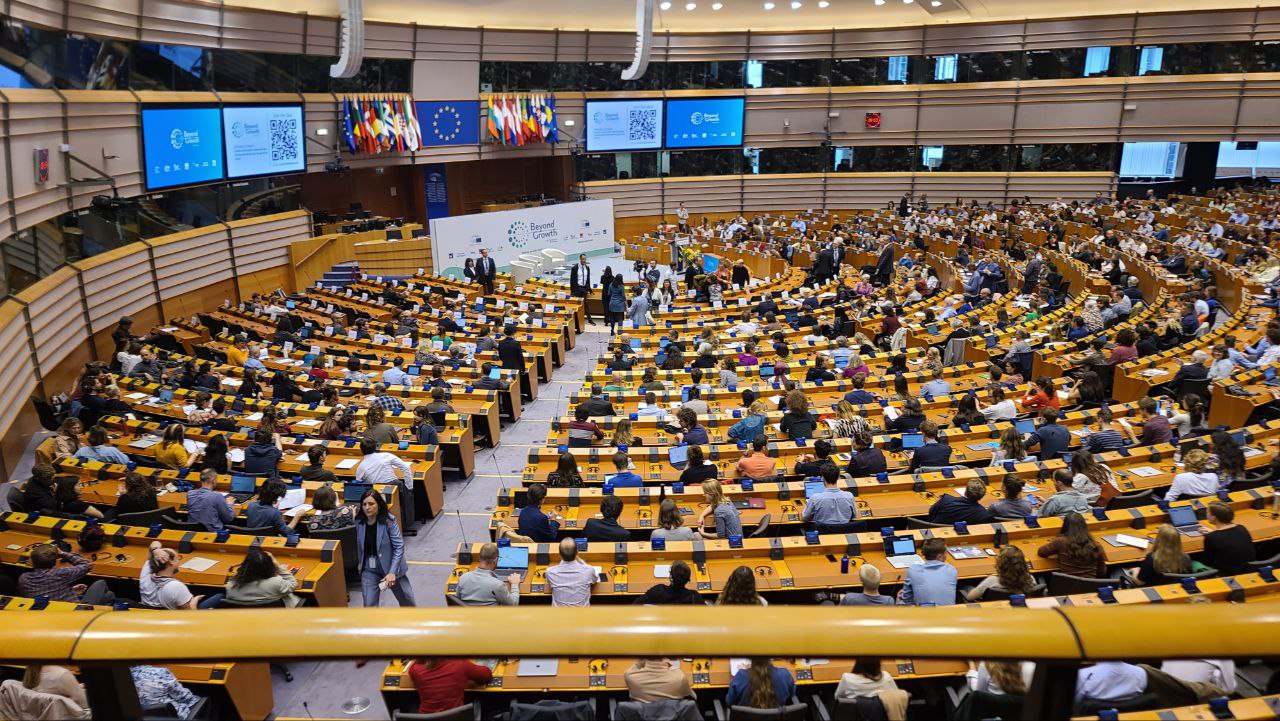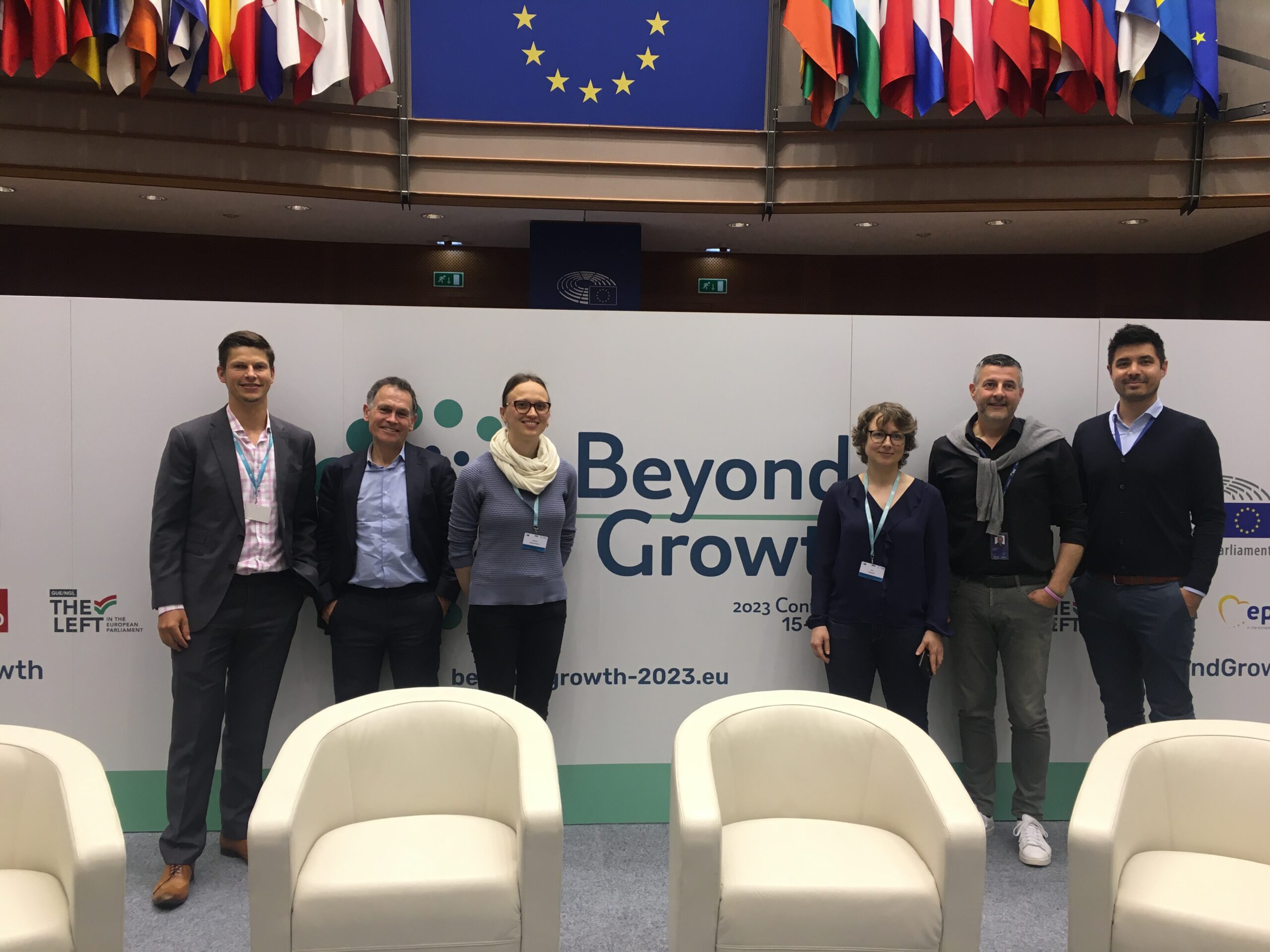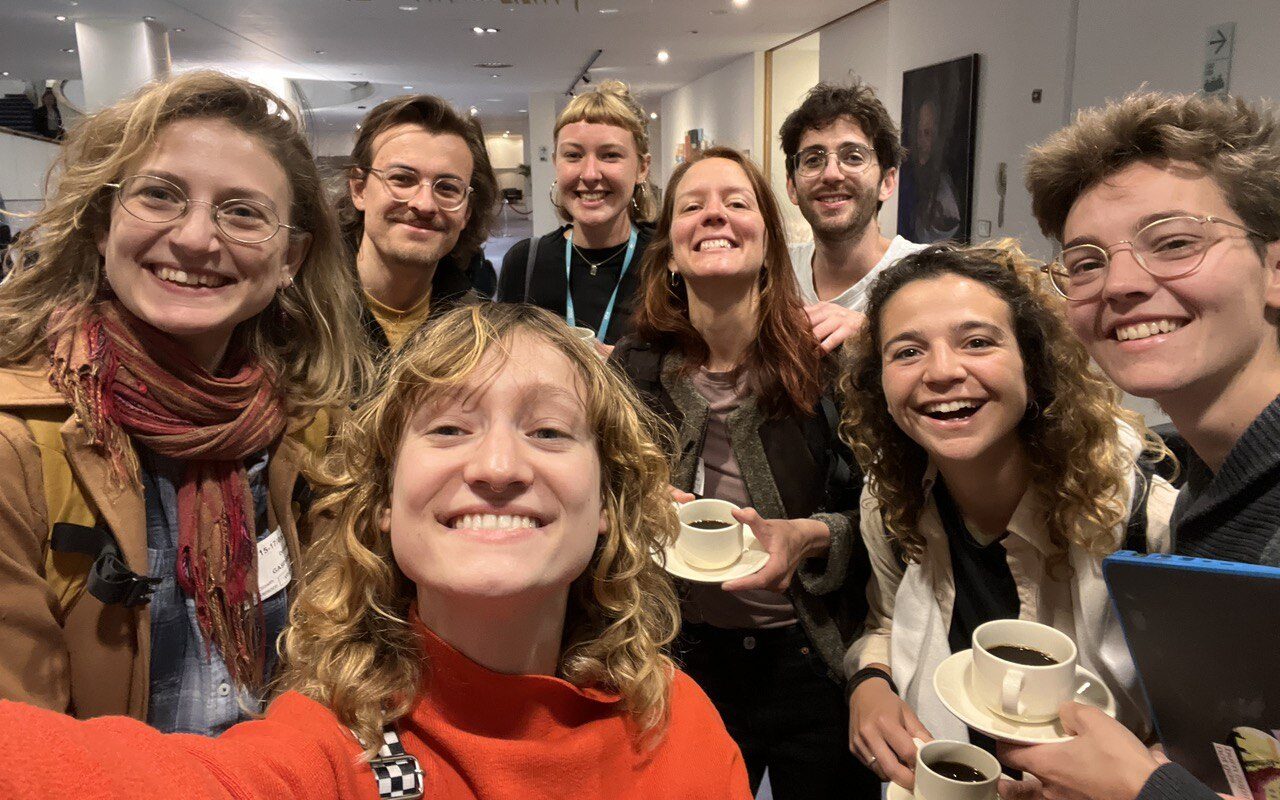By Nele Adolphsen and Jana Kenkel.
From the 15th to the 17th of May, R&D co-organised and participated in the 2023 Beyond Growth Conference at the European Parliament. During the three days, over 7000 researchers, activists, and politicians gathered in Brussels and online to discuss alternatives to our current economic system. Having slow-travelled back to Barcelona, we started to reflect on the conference within the R&D team. Here, we want to share some reflections on the event and our hopes and expectations for any future edition to come.

Although it has already been two weeks since the end of the conference, we are still impressed by this historic event that was enthusiastically called the Woodstock of economics. R&D’s co-president Giorgos Kallis perceived the conference overall positive, noting he was “impressed by the quality, rigorousness and cohesion that came out of the academic talks, and the many new faces that can skilfully articulate degrowth-related ideas in many different topics; as well as the energy and momentum expressed by younger activists and the young spokespersons of the climate justice movement that turn ideas that have been circulating in the degrowth community for long into a political narrative.”
Brenda Nistor, policy program manger at R&D echoes these positive feelings and adds that she was similarly impressed by „how much the discourse on decoloniality has permeated post-growth debates, at least for the people who do not need convincing.” Still, she notes, that she was “a bit disappointed that the patriarchy was not named as being on par with capitalism and colonialism and interwoven with the latter two to form interlocking narratives and systems of oppression.” In her view “it seems like gender-based oppression has been obviated for mainstream feminism, with panels being overwhelmingly white and euro-centric. When speaking about decoloniality, it is important to take on a gender perspective as well, as women in the Global South disproportionately continue to bear the burden of the north´s progress.” In a future edition of the conference she would thus hope to see more intersectional feminist dimensions to decolonial and post-capitalist panels and debates.
The limited amount of and the limits to the decolonial perspectives during the event, (also laid out in a critical reflection by Sabaheta Ramčilović-Suomine here) are not the only point of contention. Some of our students voiced their discontent with the general format. As such it provided limited space for discussion and left some interventions unchallenged that seemed to have missed the mark of the conference altogether (most notably of course Roberta Metsola’s intervention at the opening). More feedback mechanisms between speakers and audience, would have potentially allowed to disrupt the strange disconnect between the urgent messages of scientists, such as Johann Röckstorm form the Potsdam Institute for Climate, and video messages by institutional actors, such as Commissioner Valdis Domborovski talking about “fair and sustainable economic growth” in the same session. Maiko Mathiesen, director of international relations at R&D suggests that in a next edition of the conference all sessions should be divided 50/50 between presentations and discussions. Whether that will make up for other structural shortcomings such as the lack of engagement by members of the European Parliament (beyond the 20 organising politicians) remains to be seen.

Looking at the media response, the event got some coverage mostly from English-speaking EU media outlets, of which only some contributions were positive. An article published in the Economist that played on widespread misconceptions of Degrowth provides, according to Timothée Parrique, a perfect example of the “macro-economic greenwashing” he criticised in his intervention at the conference. While Parrique took the time to write a response and unravel some of the false assumptions that structured the critique of the conference, the event reminds us that our media impact needs to be carefully considered. According to Giorgos Kallis “too little thought was given to, and resources were spent on having such. Without media impact, this turned out to be more of an inside event, for EU institutions people, and for degrowth activists, but with very little effect and reached out outside the halls of the Parliament.“
Still, as R&D we left the event feeling energised by the shared momentum for the Degrowth community. “There was a feeling that the beyond growth community is getting stronger – intellectually and politically”, Giorgos Kallis notes, a feeling that was echoed more broadly by our participants. In the opening plenary Jason Hickel pointed out that our “hope could ever be as big as our struggle”. In this logic, having the many different individuals and organisations committed to the same struggle gathered in one place could only be a truly hopeful sight. Of course, participants did not constitute a fully homogenous group – but the slido polls during the session suggest that Degrowth and post-growth participants represented the overwhelming majority. Crucially, the event provided a space to connect, to exchange ideas on research and political action and form groups of Degrowthers in different cities.
As Viktor Humpert, local relations director at R&D, concludes: “It is great to see the momentum of degrowthers and people critical towards the growth paradigm come together and discuss ideas, weave international networks that will be key for advancing degrowth. We are not alone and the movement and its ideas are getting traction. This conference will serve as an important reference point for the legitimacy and mainstreaming of degrowth politics. At the same time, lots of work still needs to be done and the political arena in Europe does not seem to become more degrowth friendly in the upcoming years. ”
If you want to learn more about the program and R&D’s involvement, we refer you to our previous blog post. In addition, all plenary and panel debates are available online to be rewatched at home.

